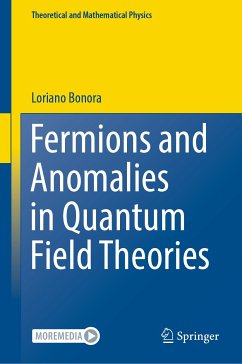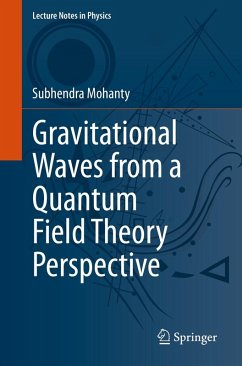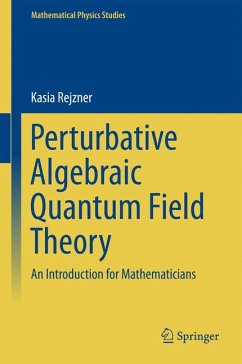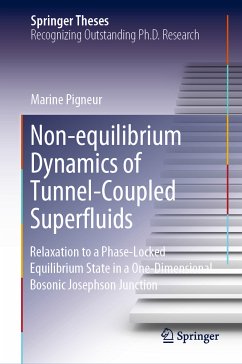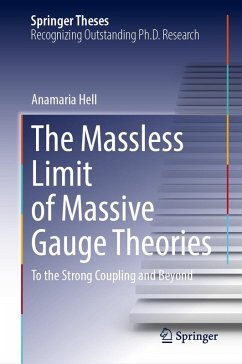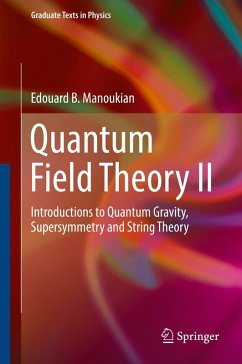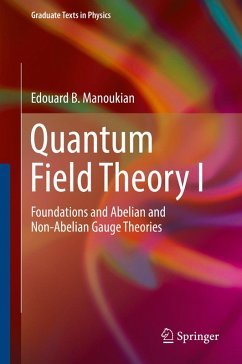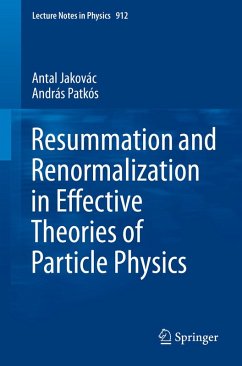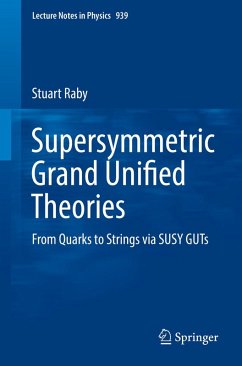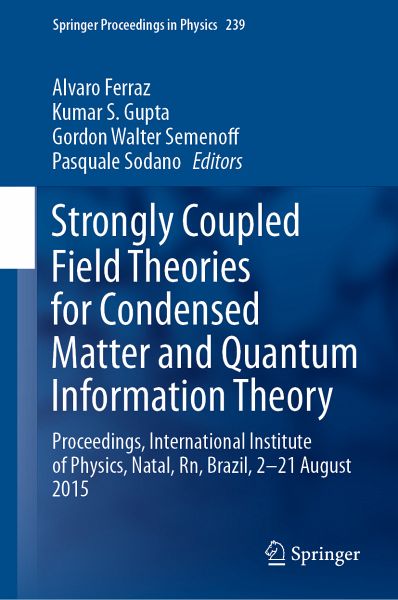
Strongly Coupled Field Theories for Condensed Matter and Quantum Information Theory (eBook, PDF)
Proceedings, International Institute of Physics, Natal, Rn, Brazil, 2-21 August 2015
Redaktion: Ferraz, Alvaro; Sodano, Pasquale; Semenoff, Gordon Walter; Gupta, Kumar S.

PAYBACK Punkte
56 °P sammeln!
This book presents a selection of advanced lectures from leading researchers, providing recent theoretical results on strongly coupled quantum field theories. It also analyzes their use for describing new quantum states, which are physically realizable in condensed matter, cold-atomic systems, as well as artificial materials. It particularly focuses on the engineering of these states in quantum devices and novel materials useful for quantum information processing.The book offers graduate students and young researchers in the field of modern condensed matter theory an updated review of the most...
This book presents a selection of advanced lectures from leading researchers, providing recent theoretical results on strongly coupled quantum field theories. It also analyzes their use for describing new quantum states, which are physically realizable in condensed matter, cold-atomic systems, as well as artificial materials. It particularly focuses on the engineering of these states in quantum devices and novel materials useful for quantum information processing.
The book offers graduate students and young researchers in the field of modern condensed matter theory an updated review of the most relevant theoretical methods used in strongly coupled field theory and string theory. It also provides the tools for understanding their relevance in describing the emergence of new quantum states in a variety of physical settings.
Specifically, this proceedings book summarizes new and previously unrelated developments in modern condensed matter physics, in particular: the interface of condensed matter theory and quantum information theory; the interface of condensed matter physics and the mathematics emerging from the classification of the topological phases of matter, such as topological insulators and topological superconductors; and the simulation of condensed matter systems with cold atoms in optical lattices.
The book offers graduate students and young researchers in the field of modern condensed matter theory an updated review of the most relevant theoretical methods used in strongly coupled field theory and string theory. It also provides the tools for understanding their relevance in describing the emergence of new quantum states in a variety of physical settings.
Specifically, this proceedings book summarizes new and previously unrelated developments in modern condensed matter physics, in particular: the interface of condensed matter theory and quantum information theory; the interface of condensed matter physics and the mathematics emerging from the classification of the topological phases of matter, such as topological insulators and topological superconductors; and the simulation of condensed matter systems with cold atoms in optical lattices.
Dieser Download kann aus rechtlichen Gründen nur mit Rechnungsadresse in A, B, BG, CY, CZ, D, DK, EW, E, FIN, F, GR, HR, H, IRL, I, LT, L, LR, M, NL, PL, P, R, S, SLO, SK ausgeliefert werden.



